Scholars discuss Heidegger’s thought in international workshop
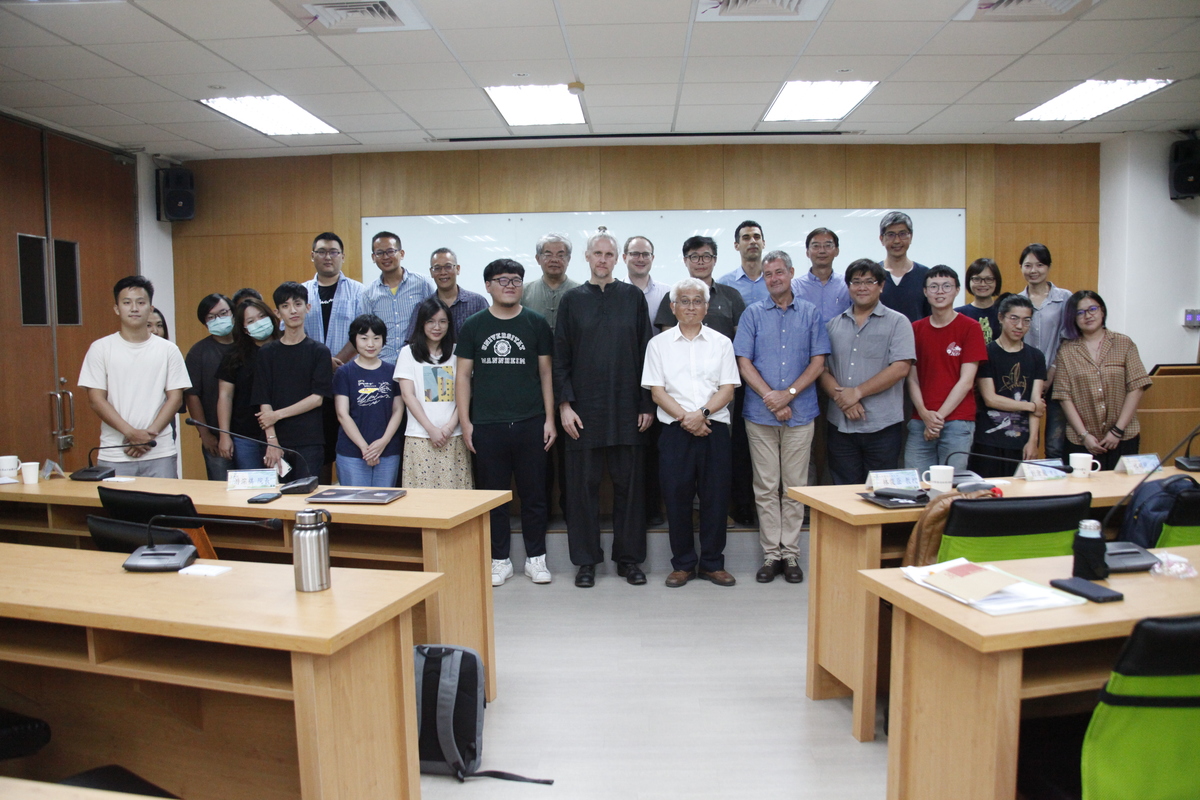
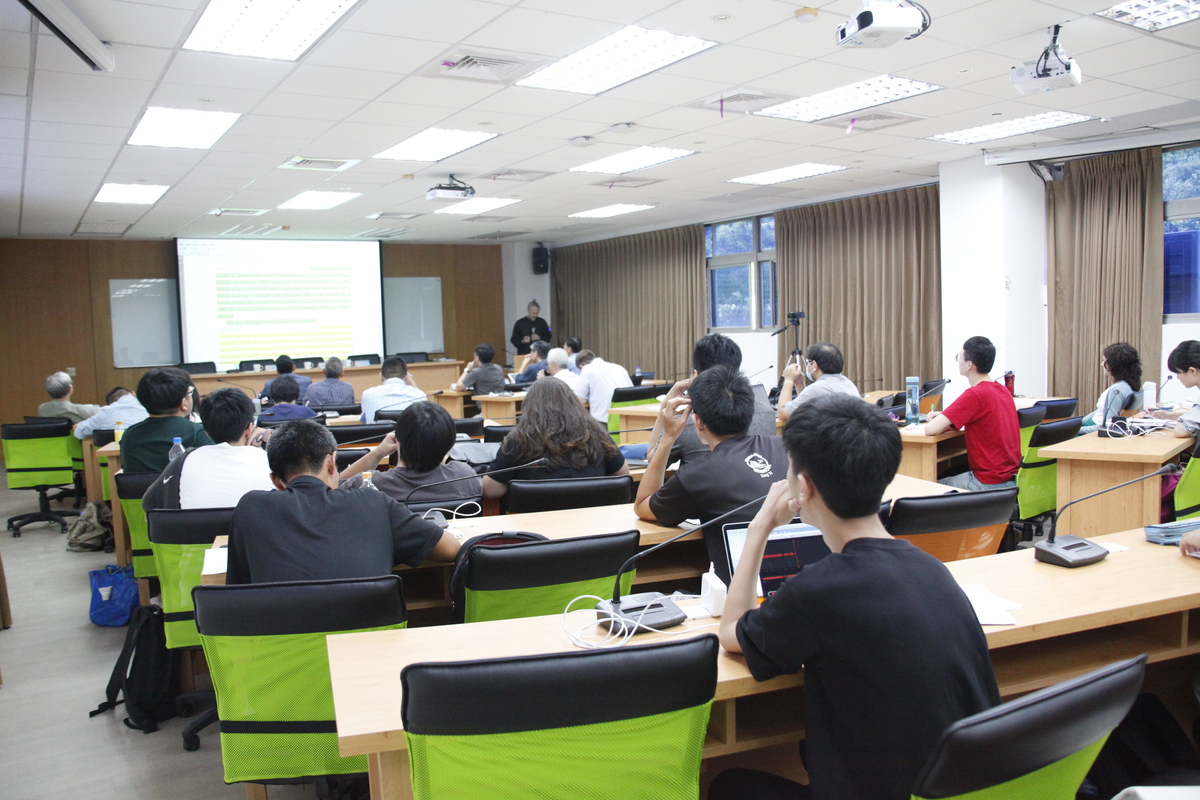
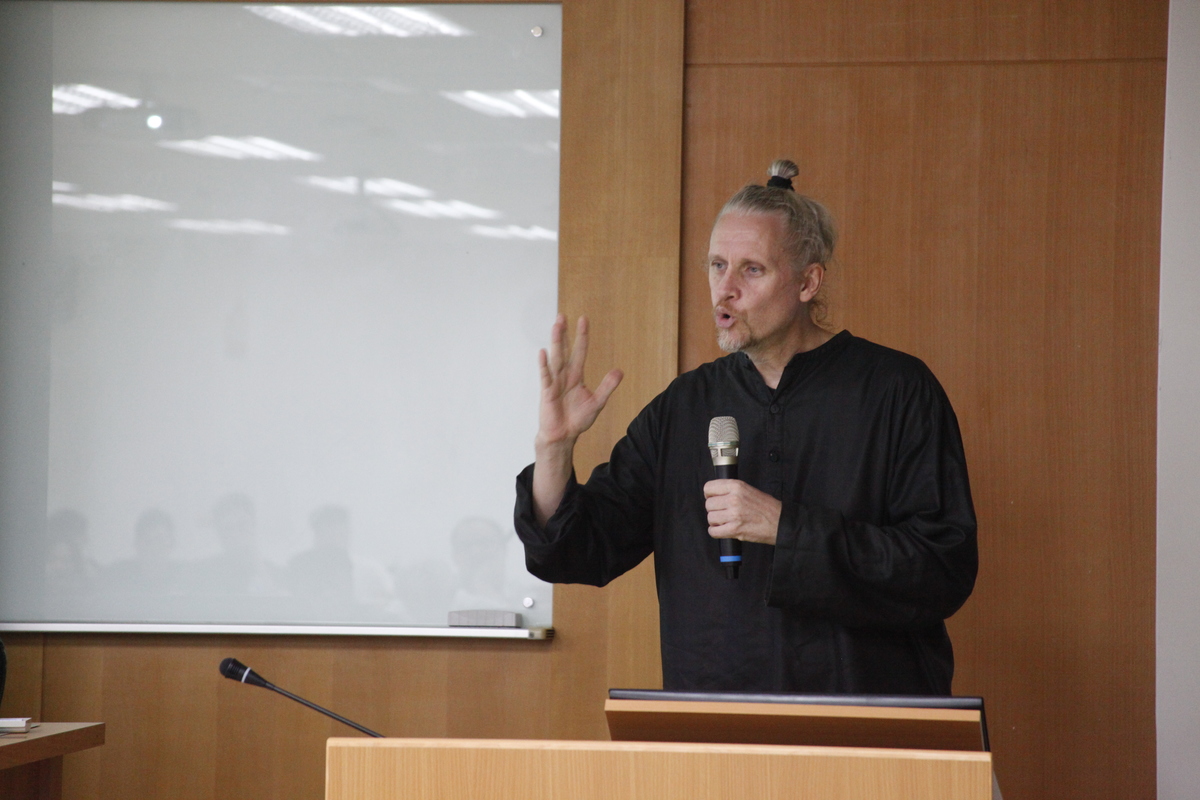
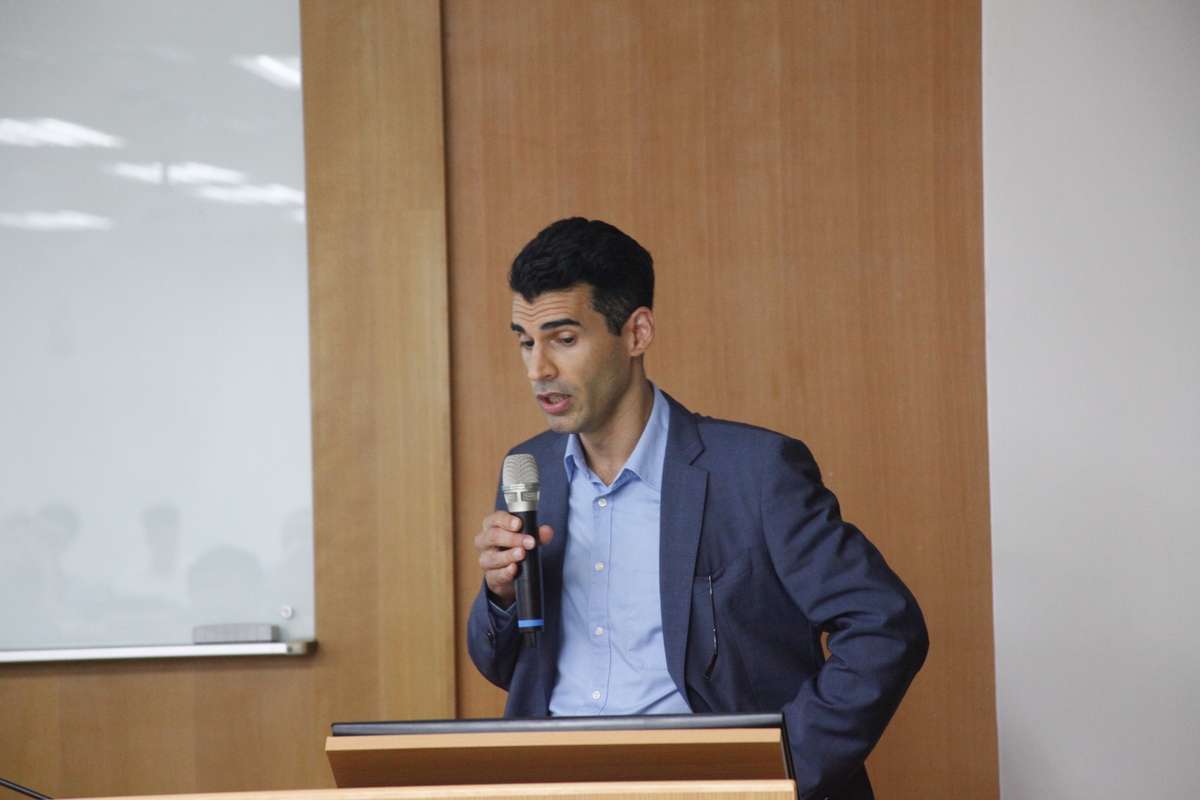
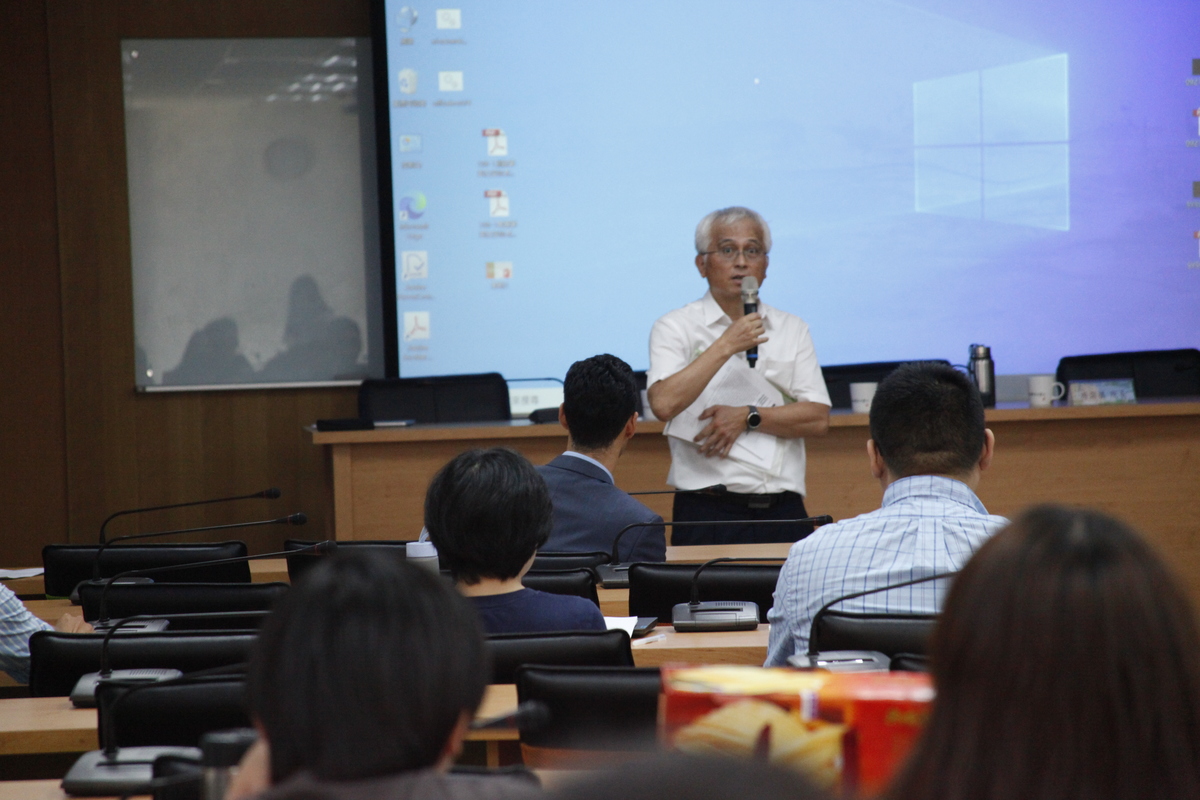
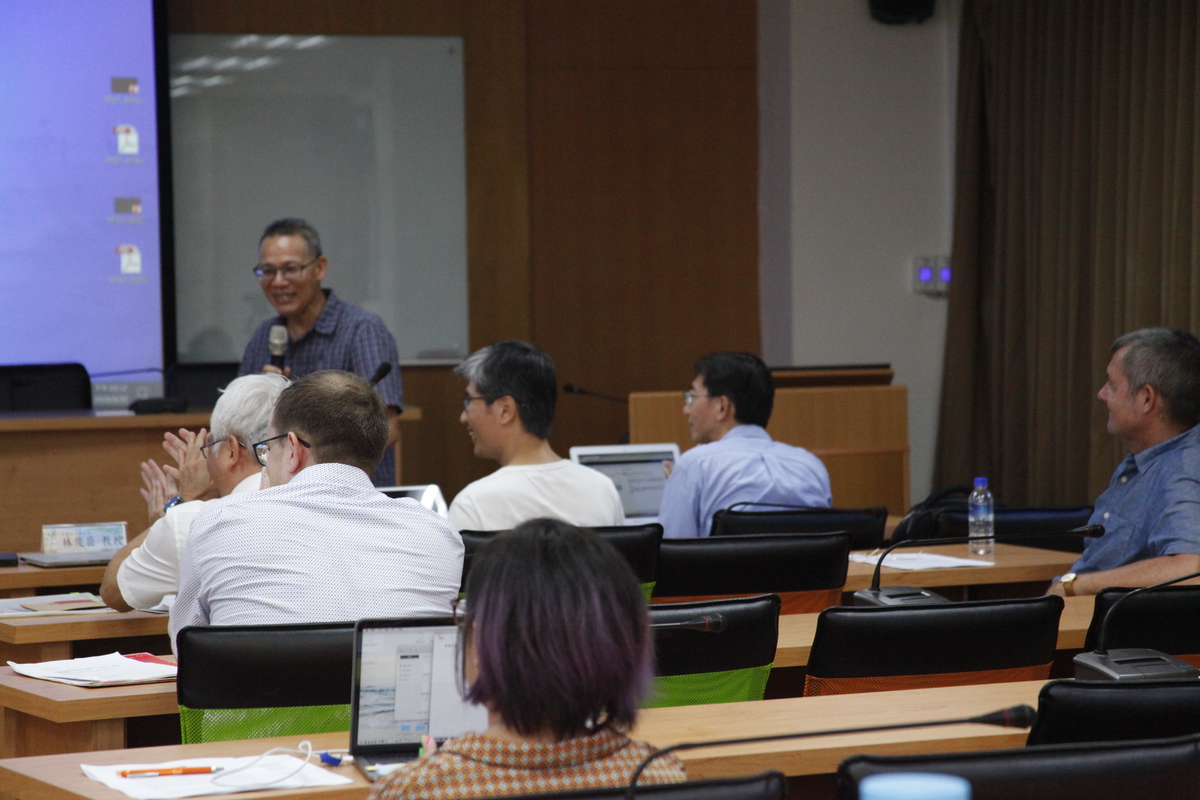
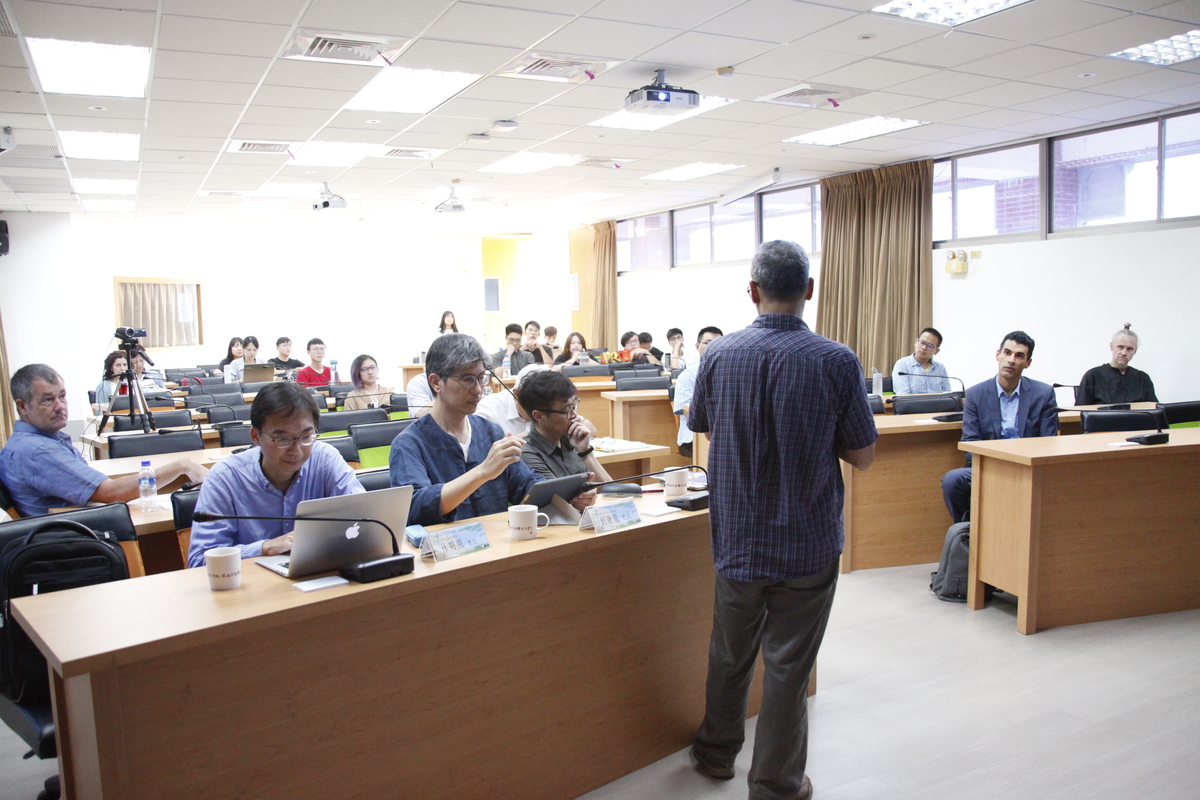
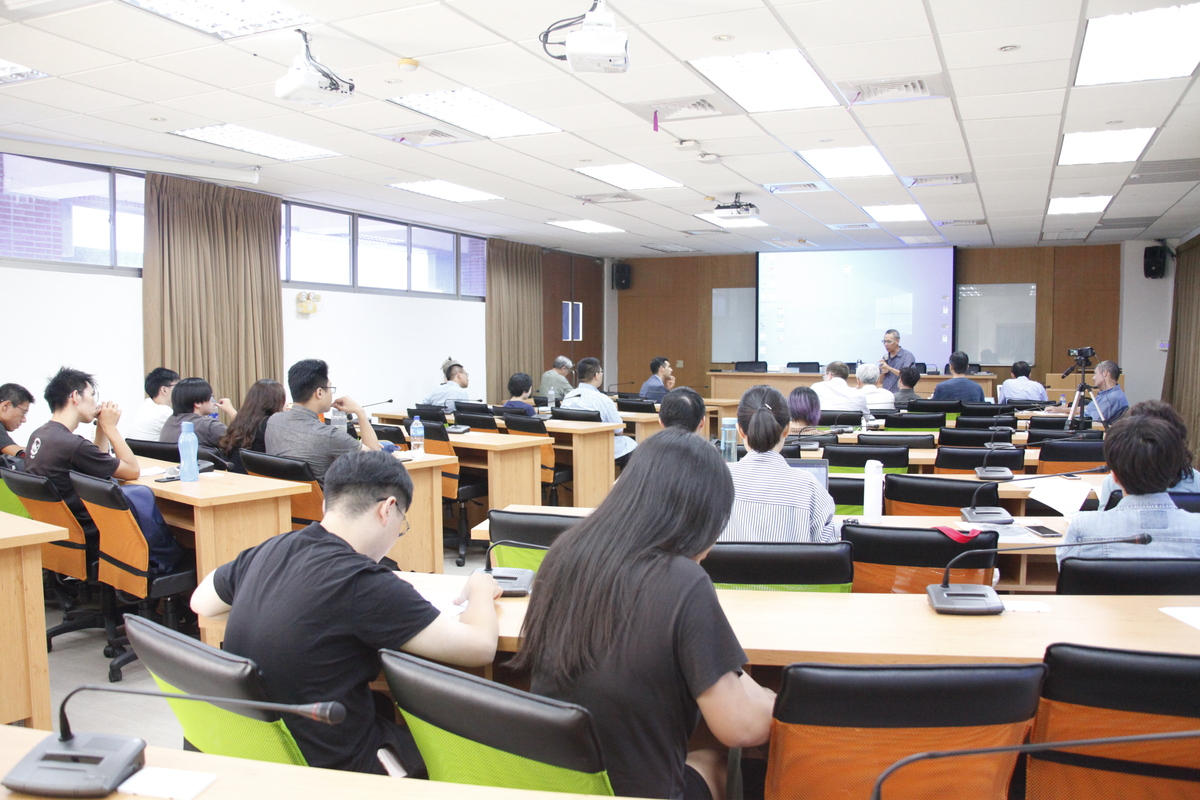
2021-02-04
(Provided by College of Liberal Arts) The College of Liberal Arts and the Research Centre for Phenomenology and the Human Sciences at NSYSU organized a workshop on the potential and challenges of interculturalism in Taiwan from Heidegger’s perspective. The workshop participants discussed the thought and thinking model on interculturalism of German philosopher Martin Heidegger and the way to demonstrate the potential of interculturalism in Taiwan. The event gathered scholars from different countries.
A German researcher, Professor Fabian Heubel of the Institute of Chinese Literature and Philosophy, Academia Sinica, and Assistant Professor Jean-Yves Heurtebise of the Department of French Language and Culture at Fu Jen Catholic University discussed the issues of interculturalism in the first part of the workshop. A scholar from China, Xia Kejun gave a lecture, reflecting if “Heidegger, influenced by Zhuangzi, had accepted Nazi philosophy as his own, would it make Zhuangzi a Nazi?”. His speech spurred a significant response from the participants. Professor Heurtebise further elaborated on the relation between Heidegger and Nazism, the limitations of Heidegger's eurocentrist thinking about interculturalism, and discussed the difficulties in the encounter of Eastern and Western cultures. In view of the contemporary acceptance of Heidegger by Chinese scholars and the political situation in mainland China, Professor Heurtebise asked, "Is Heidegger having his moment in China now?” Professor of NSYSU Institute of Philosophy Mathias Obert further developed this topic together with other participating scholars.
The second part of the workshop concentrated on Taiwan and its diverse culture in different moments of history and on the potential of multiculturalism in Taiwan. After Professor of the Graduate Institute of Philosophy at National Tsing Hua University Rur-Bin Yang introduced the topic; Professor Heubel said pessimistically that “Taiwan has missed its golden time for multiculturalism”. He believes that the current global situation and humanist thought becoming polarized are not favorable to the dialogue between liberalism and Confucianism brought up by Neo-Confucianists in Taiwan and Hong Kong. In the debate, Professor Heurtebise mentioned the sensitive issue of “de-sinization”. He said that in the past, sinocentrism used to be almost a religious trend; in Taiwan, “de-sinization" meant the secularization of the Chinese culture and removal of its religious element from politics that allowed the culture to manifest its intercultural features.
During the workshop, the participating scholars engaged in a vivid discussion and exchange of a variety of ideas and also showed that Taiwan, a land of various cultures, has encouraged and embraced a plurality of opinions. The event resulted in a lively exchange of ideas and discussion and made the participants await the next opportunity to debate on academic and contemporary issues.
(Edited by Public Affairs Division)
(Provided by College of Liberal Arts) The College of Liberal Arts and the Research Centre for Phenomenology and the Human Sciences at NSYSU organized a workshop on the potential and challenges of interculturalism in Taiwan from Heidegger’s perspective. The workshop participants discussed the thought and thinking model on interculturalism of German philosopher Martin Heidegger and the way to demonstrate the potential of interculturalism in Taiwan. The event gathered scholars from different countries.
A German researcher, Professor Fabian Heubel of the Institute of Chinese Literature and Philosophy, Academia Sinica, and Assistant Professor Jean-Yves Heurtebise of the Department of French Language and Culture at Fu Jen Catholic University discussed the issues of interculturalism in the first part of the workshop. A scholar from China, Xia Kejun gave a lecture, reflecting if “Heidegger, influenced by Zhuangzi, had accepted Nazi philosophy as his own, would it make Zhuangzi a Nazi?”. His speech spurred a significant response from the participants. Professor Heurtebise further elaborated on the relation between Heidegger and Nazism, the limitations of Heidegger's eurocentrist thinking about interculturalism, and discussed the difficulties in the encounter of Eastern and Western cultures. In view of the contemporary acceptance of Heidegger by Chinese scholars and the political situation in mainland China, Professor Heurtebise asked, "Is Heidegger having his moment in China now?” Professor of NSYSU Institute of Philosophy Mathias Obert further developed this topic together with other participating scholars.
The second part of the workshop concentrated on Taiwan and its diverse culture in different moments of history and on the potential of multiculturalism in Taiwan. After Professor of the Graduate Institute of Philosophy at National Tsing Hua University Rur-Bin Yang introduced the topic; Professor Heubel said pessimistically that “Taiwan has missed its golden time for multiculturalism”. He believes that the current global situation and humanist thought becoming polarized are not favorable to the dialogue between liberalism and Confucianism brought up by Neo-Confucianists in Taiwan and Hong Kong. In the debate, Professor Heurtebise mentioned the sensitive issue of “de-sinization”. He said that in the past, sinocentrism used to be almost a religious trend; in Taiwan, “de-sinization" meant the secularization of the Chinese culture and removal of its religious element from politics that allowed the culture to manifest its intercultural features.
During the workshop, the participating scholars engaged in a vivid discussion and exchange of a variety of ideas and also showed that Taiwan, a land of various cultures, has encouraged and embraced a plurality of opinions. The event resulted in a lively exchange of ideas and discussion and made the participants await the next opportunity to debate on academic and contemporary issues.
(Edited by Public Affairs Division)
Click Num:
Share
